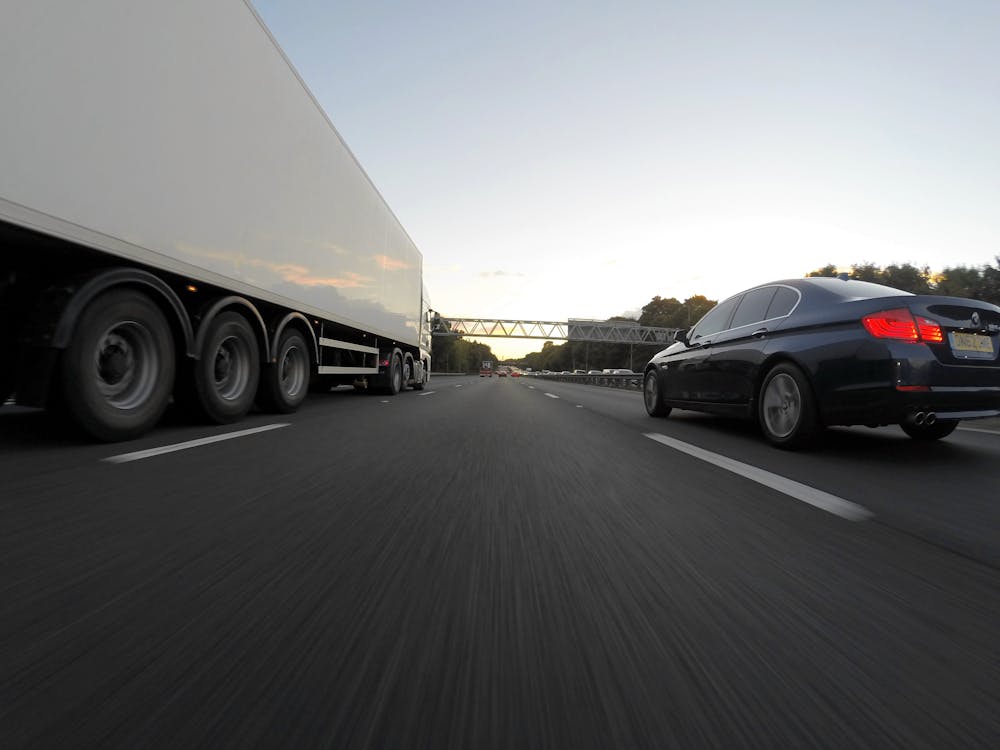St. Louis is a pivotal nexus for the nation's cargo and freight. The city hosts over 140,000 trucking-related jobs, a staggering 1 in 17 jobs in Missouri. As the veins of commercial logistics and freight pulse through the city, its highways witness a constant stream of trucks.
While this brings economic prosperity and employment opportunities, it also marks the backdrop for a growing concern - the rise of trucking accidents.
According to TorHoerman Law, the heart of Missouri has experienced a steady surge in trucking accidents over the years. However, beyond the numerical accounts lies a profound human dimension, often overshadowed by statistics.
This article aims to humanize the toll of truck accidents by sharing recent accounts of such incidents.
Recent Instances of Fatal Truck Accidents in St. Louis
Tragic incidents of truck accidents highlight the dire consequences of collisions on the city's roadways. In one devastating occurrence reported by KSDK, a collision at the intersection of South 14th Street and Clark Avenue proved fatal.
A Chevrolet Monte Carlo, racing at high speed, ran a red light and collided with a box truck. The impact led the Monte Carlo off the road, striking a fire hydrant. The 34-year-old Monte Carlo driver lost his life at the scene, emphasizing the irreparable human cost associated with such accidents. The box truck driver sustained minor injuries.
In another heartbreaking incident covered by Live 5 News, a Greyhound bus crash involving multiple semi-trucks resulted in three fatalities. The Greyhound bus collided with three parked tractor-trailers on the westbound I-70 rest stop.
The crash unfolded in the early morning hours, leaving a trail of devastation. David Cherno, a truck driver involved in the incident, described being jolted awake as his truck was hit. Despite the chaos, he courageously assisted in rescuing people from the bus before emergency responders arrived.
These tragic events underscore the urgent need to address the complexities and human toll associated with truck accidents. Beyond the statistics lie stories of lives lost, families shattered, and individuals grappling with the aftermath of these devastating collisions.
The Lingering Scars of Injury
Survivors often face the silent battle of psychological impact, with conditions like post-traumatic stress disorder (PTSD) casting a long shadow. According to Legal Desire, victims may endure flashbacks, nightmares, and a paralyzing fear associated with the accident. Anxiety disorders and an aversion to driving further compound the psychological toll.
This unseen trauma contributes to withdrawal, depression, and severe emotional reactions triggered by reminders of the accident. The fight for recovery encompasses mental health therapy and medications, reflecting the comprehensive care required to rebuild shattered lives.
The Ripple Effect on Families
Truck accidents don't merely impact the individuals involved. Their repercussions send shockwaves through families and communities, leaving a trail of economic distress in their wake.
The aftermath of a truck accident often initiates a domino effect, starting with the immediate economic strain on families. Lost wages, medical bills, and the potential need for ongoing care threaten the financial stability that families depend on.
The sudden disruption of income sources amplifies the stressors, forcing families to navigate a complex web of financial challenges.
Navigating the aftermath of a truck accident often necessitates legal intervention. This emphasizes the crucial role of a St. Louis truck accident lawyer. These legal experts become lifelines for families, advocating for compensation to alleviate the economic burdens imposed by the accident.
Leveraging their expertise in personal injury law and specific knowledge of trucking regulations, these lawyers play a pivotal role in building a robust case. They investigate the circumstances surrounding the accident, gather evidence, and assess liability, work to establish the culpability of the responsible parties.
Missouri Car Accident Laws
In Missouri, the concept of "pure comparative fault" plays a pivotal role in determining compensation after an accident. This principle dictates that if you're injured in an accident and share some responsibility, your recoverable damages are reduced in proportion to your fault.
Consider a scenario where a jury awards you $100,000 for injuries and losses but determines that you bear 10 percent of the blame. In adherence to a pure comparative fault, your damages are then diminished by 10 percent, resulting in a final award of $90,000. This rule applies regardless of whether you are deemed more responsible for the accident than the other driver.
Even if you are found 90 percent at fault, you are still entitled to 10 percent of your total damages. Conversely, you would be responsible for covering 90 percent of the other driver's damages. This comparative negligence rule guides both judges and juries in court proceedings and influences how insurance claims adjusters evaluate cases.
In conclusion, navigating the aftermath of a truck accident in St. Louis transcends the immediate impact on those involved. Beyond the visible damage to vehicles and infrastructure lies a web of hidden costs that ripple through individuals and families.
As St. Louis continues to be a vital hub for cargo and freight, the need for heightened awareness and stringent safety measures becomes evident.
Understanding the lingering scars of injuries, the ripple effect on families, and the legal landscape surrounding such accidents is crucial. By shedding light on these aspects, we pave the way for a more comprehensive approach to addressing the hidden costs of truck accidents. Through collective efforts, we can strive to mitigate the profound impact of these incidents on individuals and society as a whole.



Post a Comment